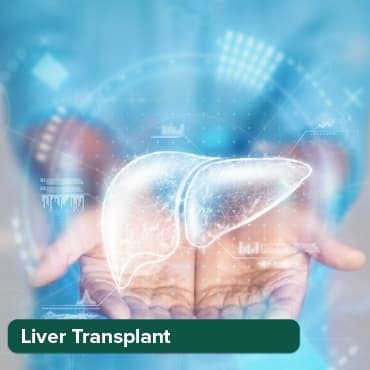
Naturopathy for Allergies: Holistic Approaches to Allergy Relief
21 Jul, 2023
 Obaidullah Junaid
Obaidullah JunaidIntroduction
In today's fast-paced world, allergies have become a common concern for many individuals. The traditional approach to allergy relief often involves medication that focuses on suppressing symptoms. However, an increasing number of people are seeking alternative methods to manage their allergies effectively. This is where naturopathy comes into play. Naturopathy, a branch of alternative medicine, offers holistic approaches to allergy relief by addressing the root cause of allergies and promoting overall well-being. In this article, we will explore various naturopathic techniques and lifestyle changes that can help alleviate allergies and improve quality of life.
Transform Your Beauty, Boost Your Confidence
Find the right cosmetic procedure for your needs.

We specialize in a wide range of cosmetic procedures

1. Understanding Allergies
What are allergies?
Allergies are the body's immune system overreacting to substances it perceives as harmful, even though they are generally harmless. Common allergens include pollen, dust mites, pet dander, mold spores, certain foods, and insect venom.
Allergic reactions occur when the immune system mistakenly identifies an allergen as a threat and produces antibodies to fight against it. When a person with allergies comes into contact with an allergen, the immune system releases chemicals, such as histamine, triggering symptoms that range from mild to severe.
Common allergens
- Pollen from trees, grasses, and weeds: Pollen allergies are often seasonal and can cause hay fever symptoms such as sneezing, itching, and watery eyes.
Most popular procedures in India
Atrial septal defect
Upto 80% off
90% Rated
Satisfactory

Coronary Angiogram a
Upto 80% off
90% Rated
Satisfactory

Coronary Angiogram C
Upto 80% off
90% Rated
Satisfactory

Liver Transplant
Upto 80% off
90% Rated
Satisfactory

Total Hip Replacemen
Upto 80% off
90% Rated
Satisfactory

- Dust mites found in bedding, upholstery, and carpets: Dust mite allergies can cause year-round symptoms, including sneezing, coughing, and a runny or stuffy nose.
- Pet dander from cats, dogs, and other animals: Animal allergies can cause respiratory symptoms, itching, and skin rashes.
- Mold spores in damp areas such as basements and bathrooms: Mold allergies can cause nasal congestion, sneezing, and eye irritation.
- Certain foods like peanuts, shellfish, and dairy products: Food allergies can range from mild reactions like hives and itching to severe symptoms such as difficulty breathing and anaphylaxis.
- Insect venom from bee stings and mosquito bites: Insect allergies can cause localized reactions, such as swelling and itching, or systemic reactions that affect the whole body.
Allergic reactions
Allergic reactions can vary from mild to severe and may manifest as sneezing, itching, runny nose, watery eyes, hives, swelling, or difficulty breathing. In severe cases, allergies can lead to anaphylaxis, a life-threatening condition that requires immediate medical attention.
2. Naturopathic Principles
Naturopathy adopts a holistic approach to healthcare, focusing on treating the whole person rather than just the symptoms. Here are some key principles of naturopathy when it comes to managing allergies.
Holistic approach
Naturopathy believes in addressing the underlying causes of allergies by considering the physical, mental, emotional, and environmental factors that contribute to an individual's health. By taking into account the interconnectedness of these aspects, naturopaths aim to restore balance and promote optimal well-being.
Individualized treatment
Each person's allergies are unique, and naturopaths take this into account when designing treatment plans. They consider the person's overall health, medical history, and specific allergy triggers to develop personalized approaches. By understanding the individual's unique constitution and needs, naturopathy aims to provide tailored treatments that address the root cause of allergies.
Treating the root cause
Naturopaths aim to identify and address the root cause of allergies instead of solely focusing on symptom relief. By understanding the underlying imbalances in the body, such as a weakened immune system or impaired detoxification pathways, naturopathy seeks to restore proper function and alleviate allergies from their source. This comprehensive approach may involve various therapies and lifestyle modifications to promote long-term healing and overall health.
3. Diet and Allergies
Diet plays a crucial role in managing allergies as it can influence the immune system and reduce inflammation. By incorporating specific foods and making dietary adjustments, individuals can support their body's natural defenses and minimize allergic reactions.
Anti-inflammatory foods
Certain foods possess anti-inflammatory properties that can help reduce allergic reactions. Including these foods in your diet can help alleviate symptoms and support overall immune function. Some examples of anti-inflammatory foods include:
- Fatty fish rich in omega-3 fatty acids, such as salmon, mackerel, and sardines.
- Flaxseeds and chia seeds, which are high in omega-3 fatty acids and fiber.
- Walnuts, which are a good source of omega-3 fatty acids and antioxidants.
- Colorful fruits and vegetables, such as berries, leafy greens, and cruciferous vegetables like broccoli and Brussels sprouts. These foods provide essential vitamins, minerals, and antioxidants that support immune health.
Elimination diet
An elimination diet involves removing potential allergenic foods from your diet for a specific period and then gradually reintroducing them to identify specific triggers. This approach helps individuals determine which foods may be causing their allergies and allows for personalized dietary adjustments. Common allergenic foods that are often eliminated during this process include dairy products, gluten-containing grains, eggs, soy, shellfish, and peanuts. It's important to consult with a healthcare professional or registered dietitian before starting an elimination diet to ensure proper guidance and nutrition.
Gut health and allergies
Maintaining a healthy gut flora is essential for optimal immune function. The gut microbiome, a collection of microorganisms in the digestive system, plays a significant role in regulating immune responses. Including probiotic-rich foods like yogurt, kefir, sauerkraut, and kimchi can help support gut health and potentially reduce allergy symptoms. Additionally, consuming fiber-rich foods such as whole grains, legumes, and fruits and vegetables can promote a healthy gut microbiome.
4. Herbal Remedies
Herbal remedies have been used for centuries to alleviate various health conditions , including allergies. These natural remedies can help reduce inflammation, support immune function, and provide relief from allergy symptoms.
Quercetin
Quercetin is a natural plant pigment found in various fruits and vegetables. It possesses anti-allergic properties and acts as a mast cell stabilizer. Mast cells are immune cells that release histamine during an allergic reaction, leading to symptoms like itching, sneezing, and inflammation. By stabilizing mast cells, quercetin helps reduce the release of histamine, alleviating allergic reactions. Foods rich in quercetin include apples, onions, berries, leafy greens, and citrus fruits.
Butterbur
Butterbur is an herb that has been traditionally used for its anti-inflammatory and antihistamine effects. It may help alleviate symptoms such as nasal congestion, itchy eyes, and sneezing. However, it's important to note that raw butterbur contains potentially harmful substances, so it should only be used in standardized and processed forms that remove these compounds. It's advisable to consult with a healthcare professional before using butterbur, especially if you have liver disease or are taking other medications.
Stinging nettle
Stinging nettle is another herbal remedy that has been used for centuries to alleviate allergy symptoms. It contains compounds that act as natural antihistamines, reducing inflammation and nasal congestion. Nettle tea or supplements may provide relief for some individuals with allergies. It's important to consult with a qualified healthcare professional before using stinging nettle, especially if you have any pre-existing medical conditions or are taking medications.
5. Acupuncture for Allergies
Acupuncture is an ancient practice rooted in Traditional Chinese Medicine (TCM). It involves the insertion of thin needles into specific points on the body to stimulate energy flow and restore balance. Acupuncture can be an effective complementary therapy for managing allergies.
Balancing energy flow
According to TCM principles, allergies are seen as an imbalance or blockage in the body's energy flow. Acupuncture aims to restore this balance by stimulating specific points related to the immune system, lungs, and other organs involved in the allergic response. By promoting the smooth flow of energy, or "qi," acupuncture helps alleviate allergy symptoms.
Reducing inflammation
Allergies often involve inflammation in the body. Acupuncture has been shown to reduce inflammation by modulating the immune response. By targeting specific acupuncture points, practitioners can help regulate the release of inflammatory substances, such as cytokines, and promote a balanced immune system.
Strengthening the immune system
Acupuncture is believed to strengthen the immune system, making it more resilient to allergens. By enhancing overall immunity, individuals may experience fewer allergy symptoms and a reduced need for medication. Acupuncture treatments can be tailored to address specific imbalances in the body and support the immune system's natural defenses.
6. Homeopathy and Allergies
Homeopathy is a system of medicine that follows the principle of "like cures like." According to this principle, a substance that causes symptoms in a healthy person can be diluted and used to treat similar symptoms in an individual. Homeopathic remedies for allergies are highly individualized and aim to stimulate the body's self-healing mechanisms.
Similarity principle
Homeopathy follows the principle of "similia similibus curentur," which means "like cures like." Homeopathic remedies are prepared from natural substances and are diluted to a point where only the energetic imprint remains. The chosen remedy is based on the similarity of symptoms between the substance and the person's unique symptom profile.
Allergen desensitization
Homeopathic practitioners may utilize desensitization techniques to gradually expose individuals to small amounts of allergens. This process aims to reduce the body's hypersensitivity and promote tolerance to specific allergens over time. Homeopathic immunotherapy, known as "allergy shots" or sublingual drops, can be customized to address specific allergens and help alleviate allergy symptoms.
Individualized remedies
Homeopathy recognizes that different individuals may experience allergies differently. Remedies are selected based on a person's unique symptom profile, taking into consideration physical, emotional, and mental aspects. Homeopathic practitioners conduct thorough consultations to understand the individual's overall health and prescribe remedies that are tailored to their specific needs.
7. Lifestyle Changes
Lifestyle plays a significant role in managing allergies. By making certain modifications and adopting healthy habits, individuals can minimize exposure to allergens and support their overall well-being.
Stress management
Stress can exacerbate allergy symptoms and weaken the immune system. Implementing stress management techniques such as meditation, yoga, deep breathing exercises, or engaging in hobbies can help reduce the body's response to allergens and improve overall well-being.
Environmental modifications
Making changes to your living environment can help minimize exposure to allergens. Some strategies include:
- Keeping windows closed during high pollen seasons to prevent allergens from entering your home.
- Using air purifiers with HEPA filters to remove allergens from the air.
- Regularly cleaning bedding and carpets to reduce dust mites and pet dander.
- Using allergen-proof covers on pillows and mattresses to create a barrier against dust mites.
Regular exercise
Engaging in regular exercise has been shown to boost the immune system and reduce the frequency and severity of allergies. Choose activities that you enjoy, such as walking, cycling, or swimming, and aim for at least 30 minutes of moderate exercise most days of the week. Exercise can help improve overall cardiovascular health, enhance lung function, and reduce inflammation in the body.
8. Breathing Techniques
Breathing techniques can be beneficial for individuals with allergies, as they help manage symptoms and promote relaxation.
Nasal irrigation
Nasal irrigation involves flushing out the nasal passages with a saline solution to remove allergens and reduce inflammation. This technique can help alleviate nasal congestion, reduce the frequency of sinus infections, and promote sinus health. Nasal irrigation can be done using a neti pot, squeeze bottle, or nasal irrigation kits available in pharmacies.
Steam inhalation
Steam inhalation with essential oils, such as eucalyptus or peppermint, can provide temporary relief from congestion and soothe irritated airways. The steam helps moisturize the nasal passages, making it easier to breathe. Be cautious when using essential oils, as some individuals may be sensitive or allergic to certain scents. It's important to dilute the oils properly and follow safety guidelines.
Deep breathing exercises
Practicing deep breathing exercises can help calm the body's stress response and reduce allergy symptoms. Take slow, deep breaths, focusing on expanding your diaphragm and exhaling fully. This technique promotes relaxation and enhances overall well-being. Deep breathing exercises can be practiced anywhere, at any time, and serve as a natural tool for managing stress and anxiety.
9. The Benefits of Naturopathy for Allergies
Naturopathy offers several benefits for individuals seeking allergy relief. By adopting naturopathic approaches, individuals may experience the following advantages:
Reduced dependency on medication
Naturopathy aims to address the underlying causes of allergies, potentially reducing the need for long-term medication use. By promoting overall health and well-being, individuals may experience a decrease in allergy symptoms and reliance on pharmaceutical interventions. This can be particularly beneficial for individuals who prefer natural and holistic methods of managing their health.
Long-term relief
Unlike temporary symptom relief provided by some medications, naturopathy offers long-term solutions by addressing the root cause of allergies. By making lifestyle changes, incorporating dietary modifications, and adopting holistic approaches, individuals can experience sustained relief and improved quality of life. Naturopathic treatments aim to support the body's natural healing processes, leading to long-lasting benefits.
Enhanced overall well-being
Naturopathy considers the whole person, not just the symptoms, and focuses on optimizing overall health. By promoting balance and addressing underlying imbalances, individuals may experience enhanced energy levels, improved sleep, and increased vitality. Naturopathic treatments often address multiple aspects of health, supporting various systems in the body and promoting overall well-being.
Conclusion
Naturopathy provides a comprehensive and holistic approach to managing allergies. By considering the individual's unique needs and addressing the root cause of allergies, naturopathic techniques, such as dietary modifications, herbal remedies, acupuncture, homeopathy, lifestyle changes, and breathing techniques, offer effective and natural alternatives to traditional medication. Embracing naturopathy for allergies not only provides symptom relief but also fosters long-term health benefits and overall well-being.
Wellness Treatment
Give yourself the time to relax
Lowest Prices Guaranteed!

Lowest Prices Guaranteed!




